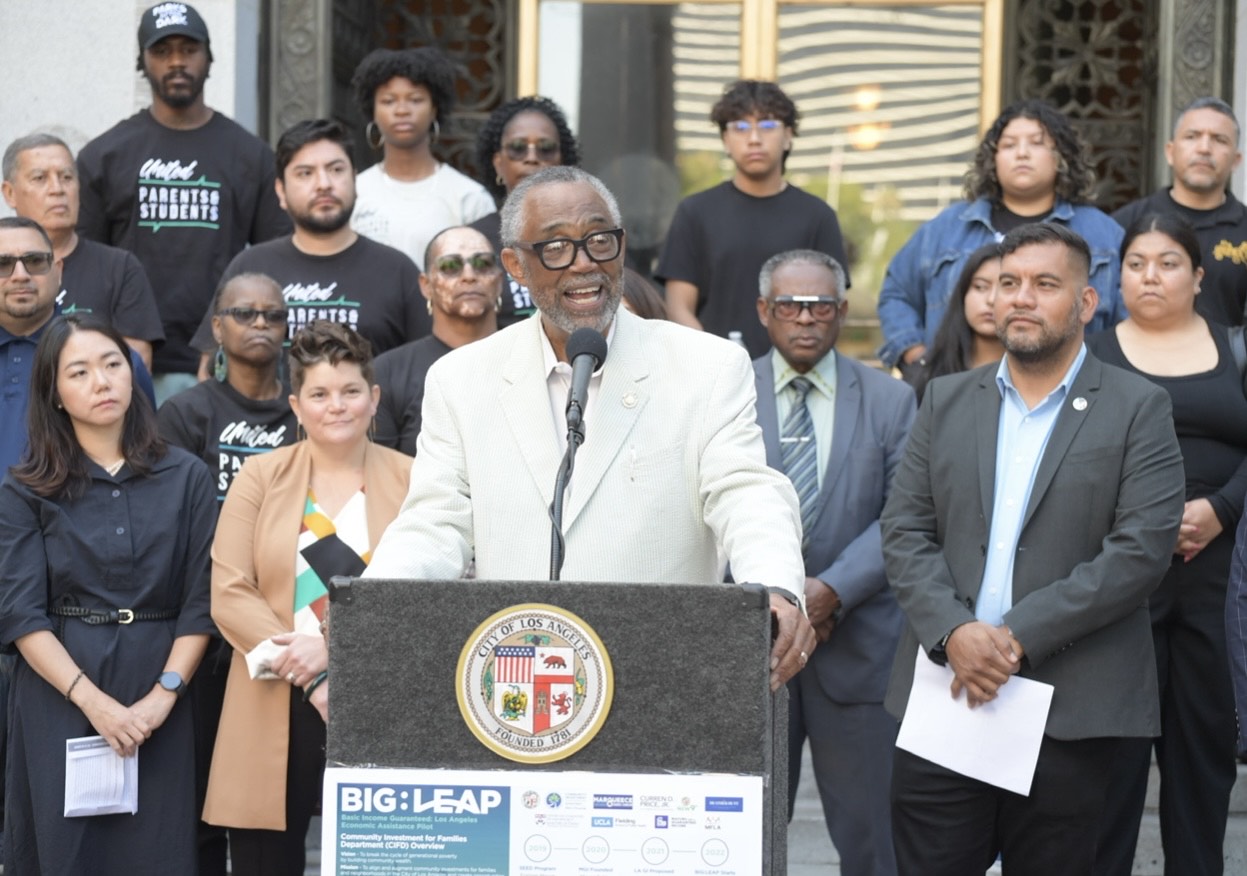 Councilmember Curren Price, at podium, and Councilmember Hugo Soto-Martinez, at right, announce the new program. (Courtesy photo)
Councilmember Curren Price, at podium, and Councilmember Hugo Soto-Martinez, at right, announce the new program. (Courtesy photo)
L.A. Councilmember Curren D. Price introduced the latest iteration of the City of LA’s Guaranteed Basic Income (GBI) efforts with a new program that will deliver $1,000 a month for two years to transitional-age youth and survivors of intimate partner violence.
The initiative, called STAY SAFE (Supporting Transitional-Aged Youth and Survivors in Achieving Financial Empowerment), is funded with $2 million in discretionary dollars, including $1 million each from Councilmembers Price and Hugo Soto-Martínez. The $2 million program will cover more than 80 participants, with oversight by the City’s Community Investment for Families Department (CIFD).
“This latest step underscores a multi-year push we have made to use guaranteed income as a tool against poverty and instability in Los Angeles,” said Price.
“STAY SAFE will give young people and survivors the breathing room to choose safety, stay housed, and plan their futures. It’s a promise that Los Angeles sees them, values them, and is investing in their dignity and I’m committed to growing this lifeline to reach even more Angelenos.”
The targeted expansion recently approved by the L.A. City Council builds on Los Angeles’ earlier Basic Income Guaranteed: Los Angeles Economic Assistance Pilot (BIG:LEAP), a $38 million program that was the largest of its kind in the nation when it launched. BIG:LEAP provided $1,000 a month for 12 months to more than 3,200 Angelenos, and drew more than 50,000 applications. Price championed that effort, which was designed and implemented by CIFD in consultation with the City Council, Mayor, and academic research partners.
Evidence from the BIG:LEAP study helped shape the groups prioritized for the new STAY SAFE program. Researchers with the Center for Guaranteed Income Research at the University of Pennsylvania, working with local partners at USC and UCLA, tracked participants and a control group from January 2022 to March 2023. Their findings indicated that recurring, direct cash payments improved participants’ financial well‑being, food security, and health‑promoting behaviors, and strengthened their sense of community. Notably, recipients reported greater ability to handle a $400 emergency expense.
Price framed STAY SAFE as a direct extension of that evidence: recurring cash, delivered simply and consistently, to groups shown to benefit most. CIFD will continue to manage implementation and evaluation as the program rolls out across the council districts represented by Price, District 9, and Soto‑Martínez, District 13.